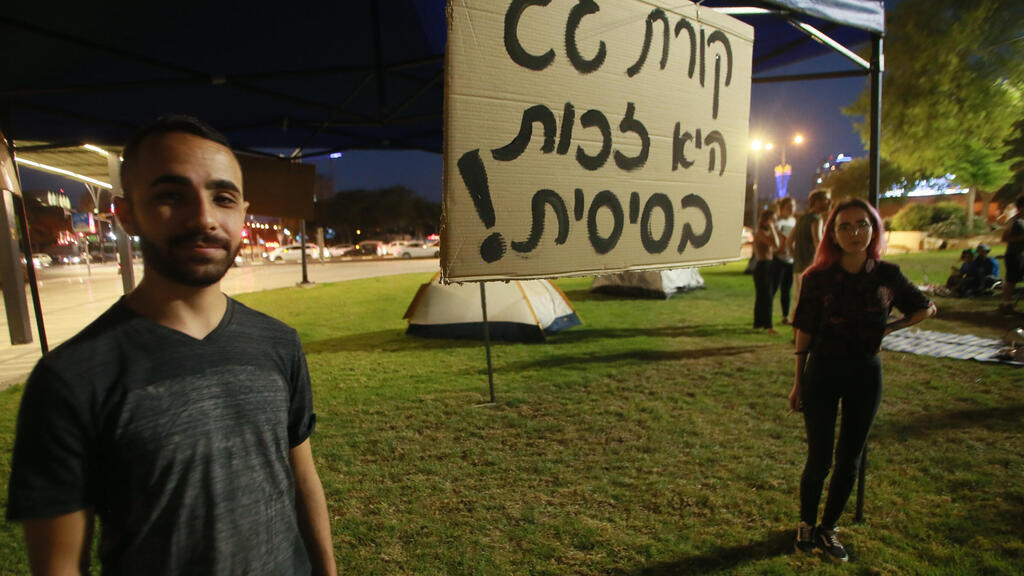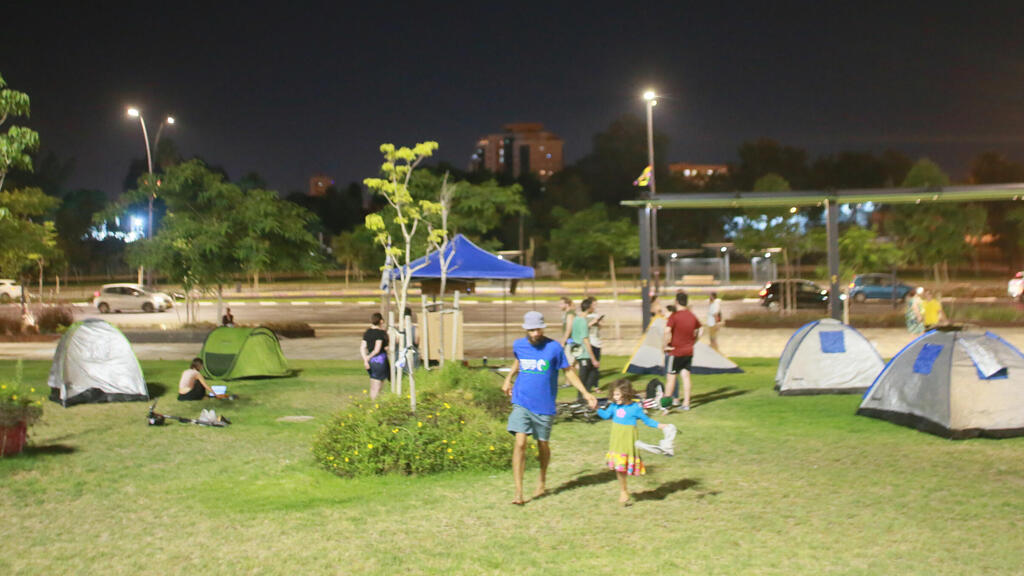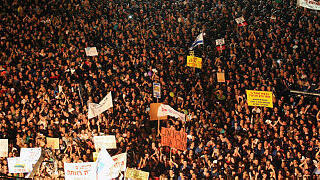As Israel once again finds itself in the midst of yet another election cycle, its fifth in only four years, the winds of protest over the price of living, which have been rumbling under the surface for awhile, appear to be swiping the streets.
Some might have noticed tents that have been popping over along the main street of many Israeli cities, similarly to the camping sites set up during civil protest that swept the nation in 2011.
The 2011 mass rallies led the government to announce steps to meditate the skyrocketing prices of properties, only for none of them to materialize as prices kept going up.
Organizers of the current protest movement hope this time around things will work out differently.
Yotam Harpez, 23, one of the protest’s organizers in Tel-Aviv, said the movement has "clear demands" and will not stop until steps are taken to lower the cost of living.
“These aren’t only my issues, they’re the issues of mothers who have to feed their children, and of families being evicted," he says. "We can’t even dream of buying an apartment, so we aren’t protesting over prices of houses for sale, but we can’t remain indifferent when the price of rent has shot up so suddenly.”
The ongoing protest began in Pardes Hanna in the north, spread to Holon and Rosh HaAyin, kept growing in Tel-Aviv, Ramat Gan, Hadera and Herzliya, and now has now arrived in Be'er Sheva and even the southernmost city of Eilat.
Protests are planned to take place in more cities in the near future, and a large-scale rally is scheduled to be held in Tel-Aviv on Saturday, July 2.
Veronica Irayev, one of the organizers of the protest in Be'er Sheva, said she hopes the protest movement will grow. “Every day we see more and more local groups who link up and grow in numbers. We’re waking up. There are protester groups in Tel-Aviv, Holon, Rosh HaAyin and more. We’re together in this and if things keep going like they do now - it won’t die down.”
The 2011 protests began after a small group of young adults set up a camp in Tel-Aviv’s Rothschild Street on July 14. Soon after, more and more people joined and similar tent neighborhoods began popping all over Israel, culminating in a mass protest attended by hundreds of thousands.
Before the current coalition government collapsed, Finance Minister Avigdor Liberman, Housing and Construction Minister Ze’ev Elkin and Interior Minister Ayelet Shaked presented plans to lower construction and land costs.
“Rent prices have risen only by 1.5% this year," said Liberman. "Not by 30%, 40% or 60%. That’s the data everyone can see it. Even if they got it wrong, I find it hard to believe such extreme price hikes have taken place.”




